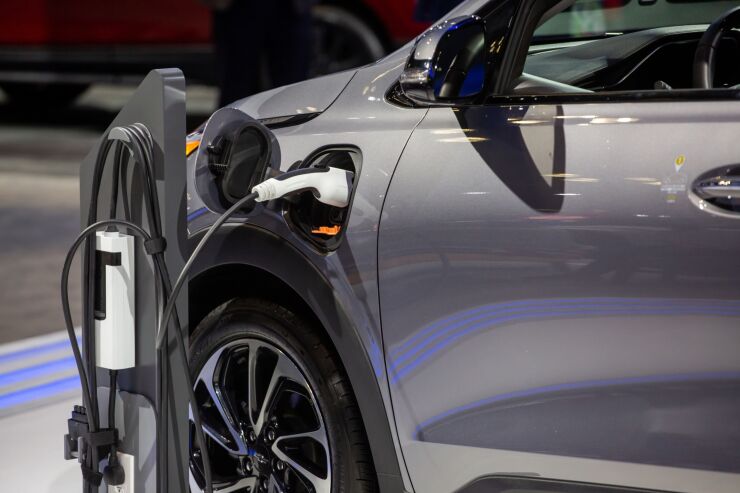A breakthrough deal between senators Chuck Schumer and Joe Manchin includes the extension of a popular consumer tax credit for the purchase of electric vehicles, a big win for EV makers like General Motors Co., Tesla Inc. and Toyota Motor Co.
The credit is included in a broader
It will allow carmakers to continue offering $7,500 in tax credits for the purchase of new “clean cars” with some conditions: they will need to be built with minerals that are extracted or processed in a country the U.S. has a free trade agreement with, and have a battery that includes a large percentage of components that were manufactured or assembled in North America.

Consumers who make clean car purchases at registered dealers would be allowed to receive discounts at the point of sale that are equal to the value of their credits for the first time. Car buyers would also be eligible to receive $4,000 for used clean cars for the first time.
The policies “will ensure that America builds the core technologies of the 21st Century here at home, and it will allow us to win the global clean transportation race,” the Zero Emission Transportation Association, an industry group that advocates for a faster switch to electric models, said in a statement.
Proposed legislation removes prior requirements that called for qualified vehicles to have solely plug-in electric drive motors and a prior 200,000-vehicle per manufacturer cap that automakers have chafed at as several manufacturers exceeded that threshold.
The deal also includes a cap on the suggested retail price of eligible vehicles of $55,000 for new cars and $80,000 for pickups and SUVs. Credits would be capped to an income level of $150,000 for a single filing taxpayer and $300,000 for joint filers for new vehicles, and at $75,000 and $150,000 for used cars.
Biden’s package “doubles down on supporting American workers, and puts us in the driver’s seat to win the global clean energy race,” Senator Debbie Stabenow, a Michigan Democrat who has pushed for the new policies, said in a message posted to Twitter.
EV supporters have argued the tax credits are necessary to spur development of the nascent plug-in car market, which is seen as crucial to reduce the use of fossil fuels and achieve Biden’s ambitious climate goals. If passed, the package would help replenish existing tax credits that have already been exhausted for some automakers.
Manchin and Schumer have staked out starkly different positions on the viability of electric cars. Schumer has called for all cars that are manufactured in America to be electric by 2030, while Manchin has called the idea of the federal government subsidizing EVs “ludicrous.”
A prior Biden administration proposal suggested allowing unionized carmakers to offer an additional $4,500 to EV car buyers, but the provision was opposed by Manchin after facing strong blowback from companies such Tesla and Toyota, who argued it would have given an unfair advantage to their Detroit-based rivals.
Carmakers





